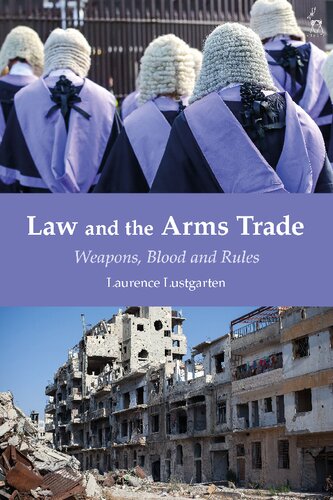

Most ebook files are in PDF format, so you can easily read them using various software such as Foxit Reader or directly on the Google Chrome browser.
Some ebook files are released by publishers in other formats such as .awz, .mobi, .epub, .fb2, etc. You may need to install specific software to read these formats on mobile/PC, such as Calibre.
Please read the tutorial at this link: https://ebookbell.com/faq
We offer FREE conversion to the popular formats you request; however, this may take some time. Therefore, right after payment, please email us, and we will try to provide the service as quickly as possible.
For some exceptional file formats or broken links (if any), please refrain from opening any disputes. Instead, email us first, and we will try to assist within a maximum of 6 hours.
EbookBell Team

4.0
16 reviewsThe sale of weapons and related technologies is, globally, one of the most politically controversial and ethically contentious forms of commerce. Intimately connected with sustaining repressive governments and violations of international human rights and humanitarian law, arms exports are also a central element in the economic and strategic policies of the governments of all large industrial states. They have also been the source of abundant corruption, and of serious challenges to the norms and effectiveness of constitutional accountability in democratic states. On paper, the arms trade is heavily regulated: national legislation and international treaties are in place which purport to prohibit certain transactions and limit others. Yet despite its importance, legal and international relations scholarship on the subject has been surprisingly limited.
This book fills this gap in the literature by examining and comparing the export control regimes of eight leading nations – USA, Russia, UK, France, Germany, Sweden, China and India – with chapters contributed by leading experts in the field of law and international relations.